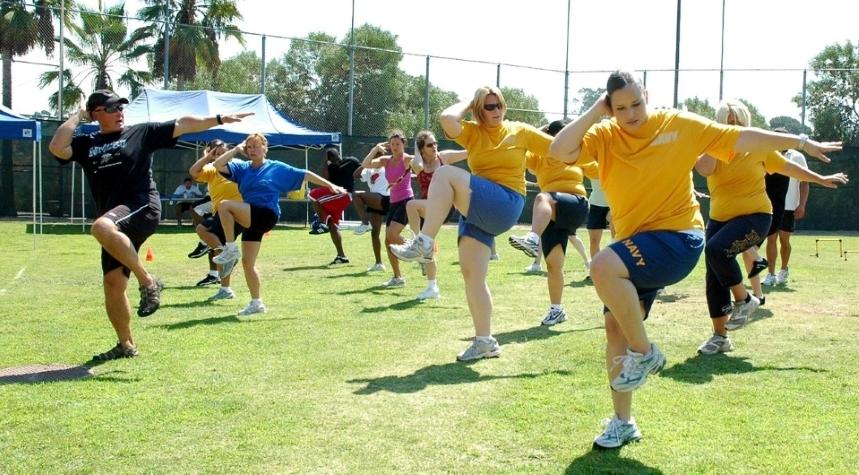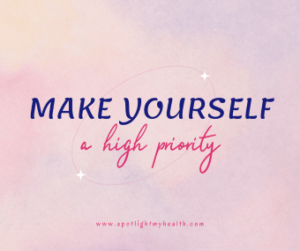Ever wonder why you seem to gain weight when starting to workout? Believe it or not, there are some very good natural reasons this happens. You may not like it, but it’s true and something you have to be persistent and stubborn about changing.
I’ve been on a weight loss journey this past year and while I’ve lost a good amount of weight, I haven’t reached my goal yet and I seem to be stuck. So, I started doing some research and found a few clues that I know I’m guilty of and wanted to share them with you.
Below are some reasons why gaining weight happens when you start a healthy regime.
Natural Reasons Why Weight Gain Happens When Starting to Workout
I can’t tell you how many times I’ve started out with good intentions to eat healthy, exercise and lose weight. Only to find a week or two or three later that I’m going in the opposite direction and actually gaining weight. How crazy does that sound? Not to mention how it makes you feel. Are you right there with me?
Four Reasons Why The Weight Gain Happens
**Inflammation
This is a natural part of exercise because working out causes tiny tears in your muscles which causes inflammation. This Inflammation is a natural response for recovery of your muscles. Eventually your body will adjust to your new routine, the inflammation settles down and you’ll start losing weight
**Muscle Repair Causes Water Retention
Basically, inflammation is fluid retention. Your body sends the fluids in response to your muscles tearing during exercise. This causes some of the weight gain when starting to workout. But the water weight also tells you your body is working the way it is supposed to even if we don’t like it. Be happy of that your body is working the way it should. Soon the extra weight will disappear.
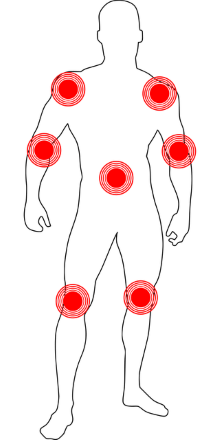
Inflammation from Workouts
**Stored Muscle Glycogen Has Increased
Changing our routine by beginning to exercise regularly takes a bit of time for your body to adjust. Your body realizes that you are doing something strenuous and that you will need extra glycogen. So, your body starts storing extra (fuel) for when you exercise to make sure that your body and muscles will have what it needs when you workout.
Since glycogen needs to bind with water, that adds even more weight that causes weight gain when starting to workout. But once your body gets used to your new routine, your muscles become more efficient. Then your body needs less glycogen, and the water disappears too.
** Body Needs Time to Adjust To Help Stop The Weight Gain When Starting to Workout
You’ve given your body a totally new routine by adding exercise and workouts. Therefore, it needs time to adjust. I know how you feel—I’m just as impatient in wanting to see results.
For some of us it takes only weeks for our bodies to adjust, and for some of us really lucky ones it could take months.
I know this is easier said than done, but we need to be patient and keep moving forward. Persistence will pay off here.
Eventually your body will reach a happy medium and balance out your water retention, metabolism rate and calorie intake and – Wala, weight will start to drop.
Ways to Counteract this Brief Period of Weight Gain
**Manage Your Stress
Yes, you need to manage your stress because it causes all kinds of havoc on your body and can take your body in the opposite direction you want to go.
I bet you weren’t taught any kind of stress management techniques while you were growing up or even since then unless you looked for said techniques yourself. I know I wasn’t so that’s how I’ve a pretty good idea you haven’t either.
We have major challenges in the world we live in today and I don’t know about you, but I always feel like there is someone wanting something I didn’t think of ahead of time, or there’s more laundry, or grocery shopping or cooking those groceries and then there is work oh, well you get the idea.
And this is just everyday life—then throw in some major challenges like a pandemic and kids learning from home and—BAM!! Major stress.

Spending Time With Pets to Reduce Stress
This is why we need to have some type of stress management tool or routine figured out ahead of time. You need to know what to do when you become stressed out. Having that figured out ahead time lets you help yourself that much faster when the need arises.
Something like deep breathing, meditating, yoga, taking a walk, counseling—something. See my post on “How to Destress.” Stress can be very destructive to the human body so finding a stress management routine would be an excellent goal for this year.
**Breath
Yep, I said breath. Our bodies can’t work correctly without enough breath and believe it or not there are plenty of people out there that don’t breathe right. Breathing is what provides your body with the oxygen it needs to do what it does. And it needs a lot of air/oxygen, so make sure it has plenty by making sure to take nice, semi-deep, but full breaths from the bottom of your stomach so your lungs totally fill. Your body will love you for it. (Psst—this will also help with stress)
**Drink Water—and Then Drink More Water
I don’t know exactly how much of our bodies are made up of water, but I know it’s a vital component. And this means we need to be drinking water on a regular basis no matter what. Then add in a new fitness routine and well, you need even more water.
The going amount of water to drink today seems to be half of your body weight. So, if you weigh 120 lbs. (don’t I wish—I’m right there with you) then you need to be drinking 60 oz. of water each day, just to stay hydrated for your size. That’s not including how much more you should drink when you start a workout routine. You will definitely need more water. Trust me on this.
I know several women that don’t like drinking water and I used to be one of them. But, once you get used to it, your body will really notice when you go through a day of not drinking your usual water intake. Actually, drinking more water helps get rid of the excess water weight you gain when starting to workout.
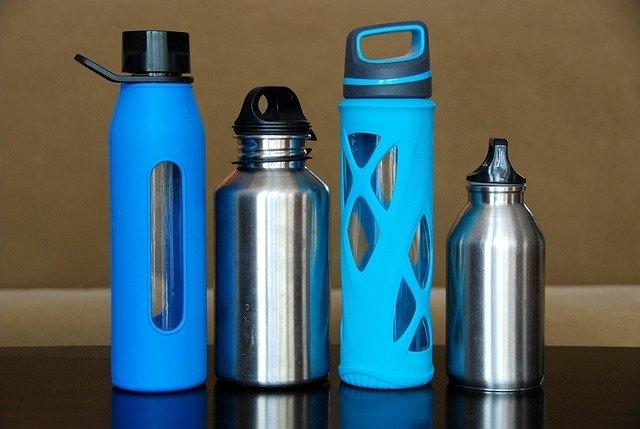
So, get yourself a 20 oz. water bottle and get started. If you weigh 120 lbs. like I said earlier, that is only three bottles of water. And if you tell yourself to drink half of it every 30-45 minutes, you’ll have that water drank in no time. You may not even notice that you’ve reached the end of your third bottle.
And yes, you will be running to the bathroom—a lot, at first. But, like everything else, your body will get used to the extra water and make adjustments. Although I suspect your body won’t consider this “extra” water, but just the amount it needs to function more easily.
**Get Enough Sleep
It goes without saying that sleep is a major component in our lives. Most of us know how it feels when we don’t get enough sleep, but that doesn’t seem to stop many of us from burning the candle at both ends.
Sleep is another major factor that our bodies need to work properly. Unfortunately, sleep seems to be one of the first places we cut back on when we need more hours than the day gives us. Just one more thing needs to get done—right? Ha! Eventually, your body will disagree with you, and you may fall asleep where you really don’t want to.
Sleep is something your body will fight you for, so if you are trying to lose weight and still not getting a full eight hours of sleep, it will definitely not work to help your weight go in the direction that you want it to.
Inadequate sleep can mess with your hormones too, which may make you feel hungrier. Here’s why: Ghrelin and Leptin. The first makes you feel hungry while Leptin tells you when you are full.
Unfortunately, sleep deprivation can slow down the release of Leptin and slow down metabolism, making you feel constantly hungry.
A third hormone that sleep affects is cortisol which regulates your appetite and fat storage, mainly around your tummy area. So, what happens when you are consistently low on sleep? It makes losing weight harder. Even, if you are faithfully working out and eating a healthy diet.


Getting Enough Sleep is Important For Everyone
**Change Your Habits
I believe our habits are the key to permanent weight loss. I’m trying very hard to change mine. I need to change the amount of time I spend thinking about food. Do you?
I know it’s something my brain has been trained to do—from very early in life. I grew up in a time where food was always around, and we were told to clean up our plates. So, its very hard for me to see food thrown away.
I’m also working to simply stop eating once I feel full. This is easier said than done, right? Especially if the food is delicious.
According to Charles Duhigg, author of The Power of Habit: Why We Do What We Do in Life and Business, a habit is “a behavior that is recurrent, is cued by a specific context, often happens without much awareness or conscious intent, and is acquired through frequent repetition”. It can be regarded as a formula (or “habit loop”) that the brain automatically follows: “When I see cue, I will do routine in order to get a reward.”
“Studies indicate that once formed, habits become encoded in brain structures and can never truly be eradicated — only replaced with stronger habits. That’s why they are so difficult to change. It’s not just a matter of will-power (i.e., self-regulation); it’s a matter of rewiring the brain”.
Rewiring the Brain
I have a daughter with a traumatic brain injury, so I know first- hand about rewiring of the brain. It’s not easy, takes persistence, constant work, and time, but is possible. The name of the game is to keep moving forward to eventually break the “habit loop.”
I’m aware of the habits I want to change, and my plan is to repeat the new habit over and over until it becomes my new routine.
Habits are very powerful, so why would it be easy to change. Humans are stubborn, so we need to make our stubbornness work for us rather than against us.
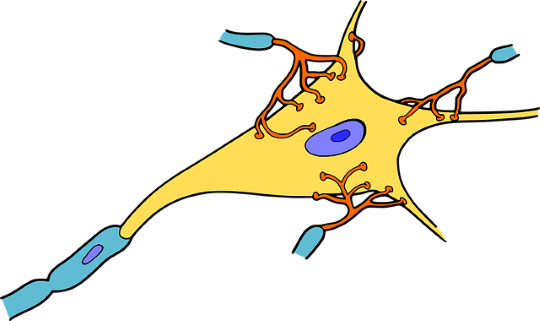
**Perseverance
I know, I know—how many times have we heard that losing weight takes time. Well, I’m here to tell you it really does. If you want to be in the 5% of people that take the weight off and then keep it off, you HAVE TO KEEP GOING. That’s just the bottom line.
Chances are your weight wasn’t put on in three months’ time, so it will definitely take longer than that to keep it off and get set in new habits for this to be the last time you need to lose weight.
And that is just the way it is—you have to create new habits that work for you, or you’ll keep yo-yoing with your weight. And you really don’t want that, right?
Final Thoughts
I’ve learned the hard way how unhealthy feels, and I was tired of being unhealthy and feeling so crappy. I don’t want to feel that way again, so I’ll keep moving forward. But I have to admit that I could use a few of you to join me so we can urge each other on. Check out my facebook page and we can chat there. Own Our Awesome
Any takers??
Stay Awesome!
Cher
Relevant Reading:
Benefits of Walking
Triggers for Overeating
If you enjoyed my post, pin it so you’ll have it for later, then share it—It would help me increase my readership and is a wonderful compliment!!

